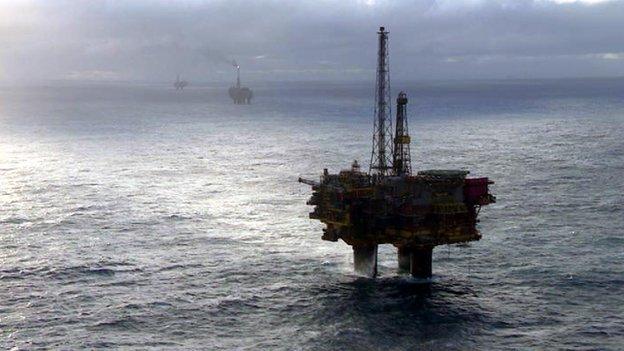Shell move 'could be in breach of international law'
- Published
- comments
Each of the platform legs are made of concrete and steel and weigh about 300,000 tonnes
Environmental groups claim Shell's plans to decommission one of the North Sea's most iconic fields could breach international law.
The oil giant lodged plans to decommission the Brent field with the UK government in February.
It wants to leave the legs of three of the platforms in place rather than removing them, which Shell has described as the safest option.
Environmentalists say the plans are not detailed enough to justify the move.
Each of the platform legs are made of concrete and steel and have a combined weight of about 300,000 tonnes.
Brent is iconic because it lends its name to the benchmark of the North Sea, Brent Crude.
WWF, Greenpeace UK, the Marine Conservation Society, Friends of the Earth Scotland, International Environmental Organisation Kimo, Whale and Dolphin Conservation, the Scottish Wildlife Trust, and RSPB Scotland have joined forces to reject the plan.
WWF Scotland director Lang Banks said: "Despite some 3,000 pages of documents, it has not been possible to come to a view on Shell's decommissioning proposal due to insufficient information being provided by the company across several key areas.
"The internationally-agreed Ospar rules set out very clear criteria and procedures for operators to follow in carrying out such assessments, but we do not believe they have been adhered to with regard to disposing of the Brent platforms.
"The material presented by Shell cannot be clearly cross-referenced to the Ospar requirements meaning we cannot assess whether or not there is a solid case for the derogations sought.
"We are therefore left with no choice but to reject Shell's plans in their current state and have asked for key further information to adequately assess their proposals."
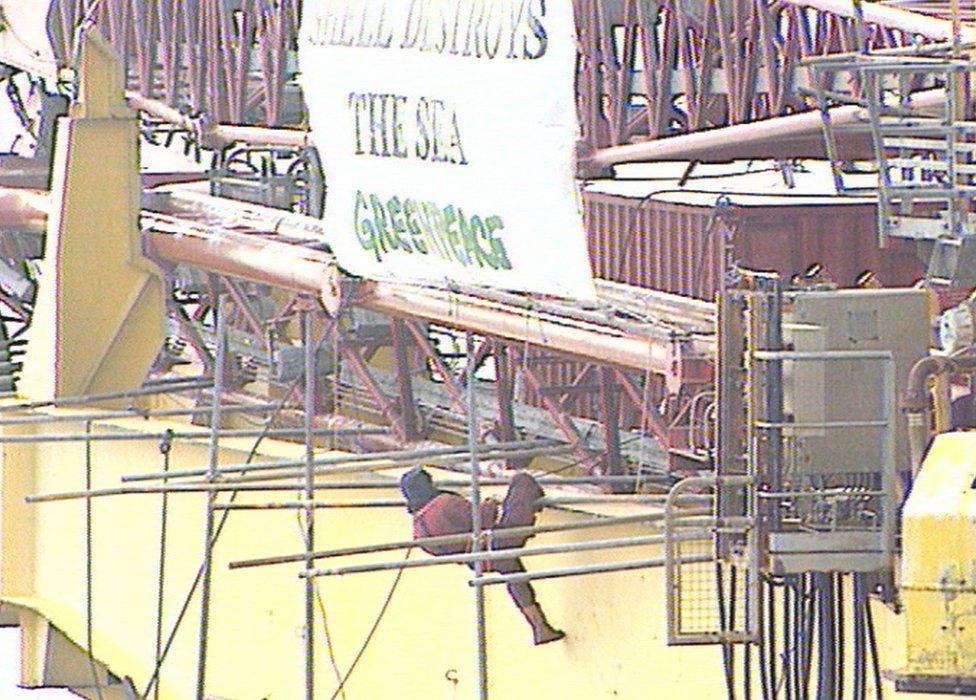
Greenpeace took direct action when Shell proposed sinking Brent Spar at sea in 1995
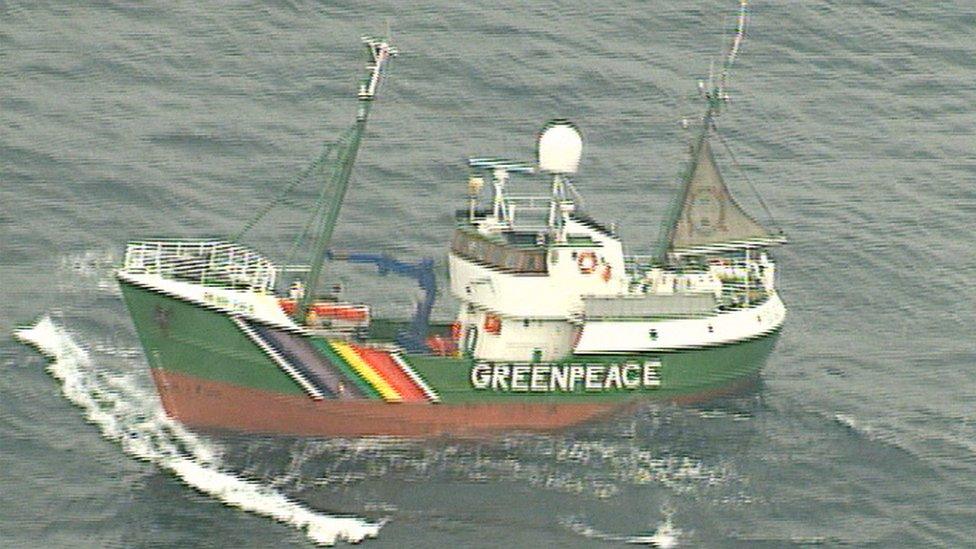
Shell doesn't want a repeat of Brent Spar.
When it proposed sinking the oil storage installation at sea in 1995, it prompted direct action by Greenpeace, external.
Greenpeace UK chief scientist Dr Doug Parr said: "The plans in their current form don't allow international law to be upheld, because it's not possible for regulators to really understand what the proposition is.
"We don't think they have explored options fully, we don't think they have justified the options we want to carry through and we think they should go back and properly do their homework.
"We won't rule in or out taking direct action on this or frankly any other campaign because we don't talk about our campaign plans in detail in advance. What I can say is that we are going to continue to monitor and to watch and make sure international law is upheld and Shell does the right thing in doing so."
End of consultation
A 60-day consultation on Shell's decommissioning programme for the Brent field has now closed.
A Shell spokesman said: "Shell welcomes the feedback, which has been received from stakeholders and members of the public during the 60-day public consultation period for the Brent field.
"The consultation concludes today and, over the coming weeks, we will continue to review and respond to the comments received.
Government ministers will now decide whether to accept the plans.
A spokeswoman for the Department for Business, Energy and Industrial Strategy said: "Any decommissioning plan will be carefully considered by the government, taking into account environmental, safety and cost implications, the impact on other users of the sea and a public consultation."
- Published8 February 2017
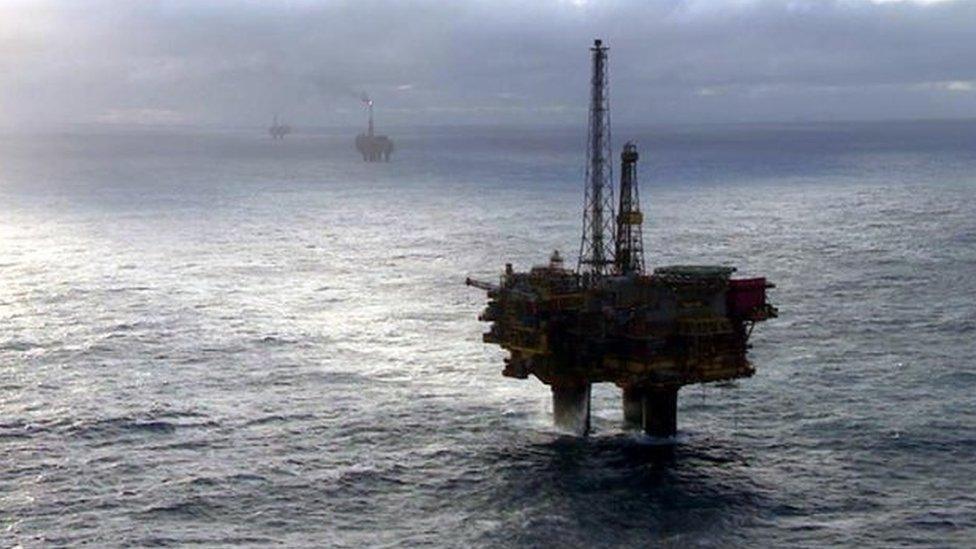
- Published23 November 2016
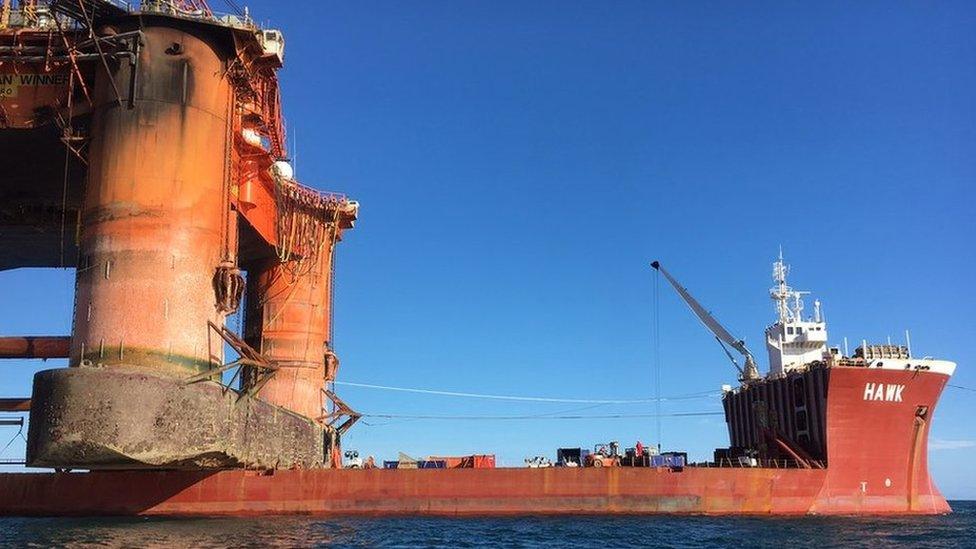
- Published31 August 2016
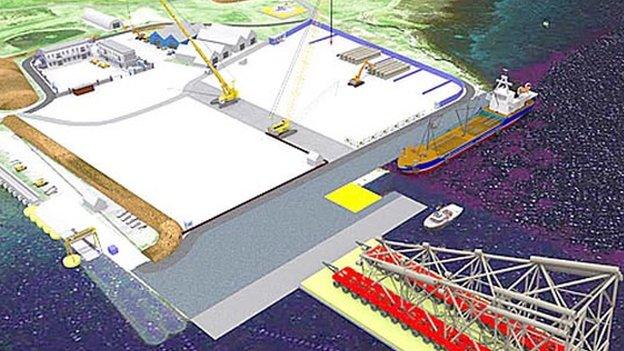
- Published5 July 2016
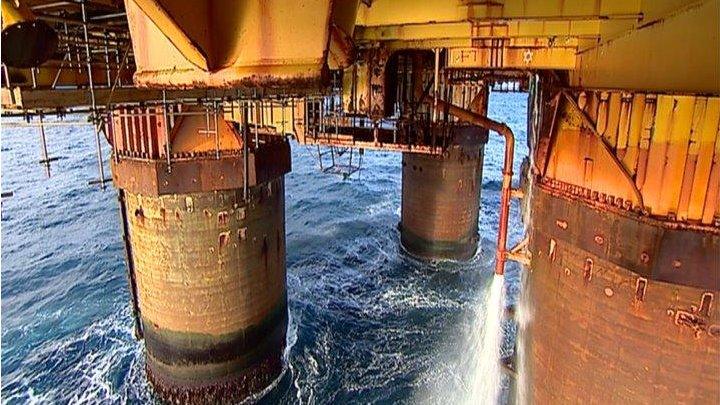
- Published28 May 2015
